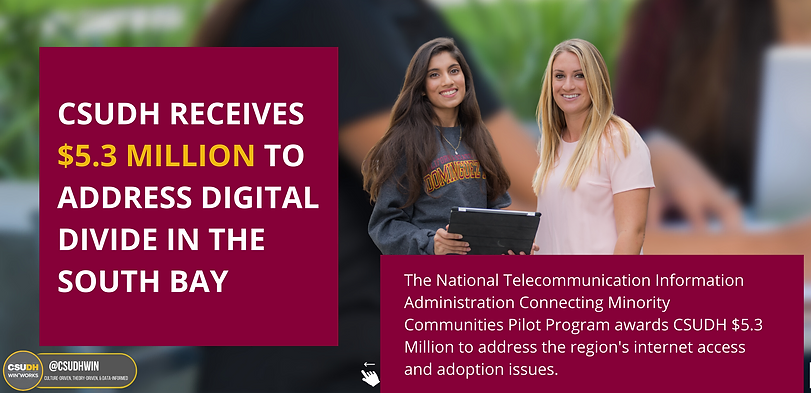
CLOSING THE DIGITAL DIVIDE
In Partnership with National Telecommunication and Information Administration’s
Connecting Minority Communities Pilot Program (CMC)
$5.3 Million was awarded to WIN to "Close the Digital Divide"

The aim of CSUDH’s Workforce Integration Network is to highlight the career opportunities for CSUDH students and the wider community. Therefore, WIN uses advanced technological resources, combined with university and industry-generated business data, to demonstrate the benefits of the CSUDH educational experience to all stakeholders: students, staff, faculty, employers, and the surrounding community.
The CMC program is part of the Biden-Harris Administration’s Internet for All initiative that will connect everyone in America with affordable, reliable high-speed Internet. This program specifically directs $268 million from the Consolidated Appropriations Act of 2021 for expanding high-speed Internet access and connectivity to eligible colleges and universities.
CSUDH-WIN is designed to address digital inequities, such as access to laptops,Internet, skills training, and technical support. The program will supply laptops, MiFi devices, and career-focused training materials to 10 partner organizations for distribution among community members:
Aptus Group
Behavioral Health Sciences, Inc.
Boys and Girls Club of the Los Angeles Harbor
- Boys and Girls Club of Carson
Color Compton
- Chinese-American Community Action
- CA Black Women’s Collective Empowerment Institute
- Concerned Citizens Community Involvement
- Destination Crenshaw
EntreNous Youth Empower-ment Services, Inc.
Goodwill Southern California
Holiness Outreach Ministry
Housing Authority of the City of Los Angeles
Kaio Foundation
Long Beach Neighbourhood Foundation
UNITE-LA | United States
Grant funds will also support paid internships for CSUDH students at the partner organizations, all of which are within a 15-mile radius of campus. Students who are first-generation, under-resourced, and underrepresented report that they cannot afford to participate in unpaid internships and have experienced a significant gap in preparation, compared to their better-resourced peers.
Grant funds will also support paid internships for CSUDH students at the partner organizations, all of which are within a 15-mile radius of campus. Students who are first-generation, under-resourced, and underrepresented report that they cannot afford to participate in unpaid internships and have experienced a significant gap in preparation, compared to their better-resourced peers.
Providing the community with essential equipment

“Access to technology and digital literacy are increasingly vital components of success in the workplace and in everyday life endeavors,” said CSUDH President Thomas A. Parham. “The CSUDH-WIN program will help address the digital divide in certain communities and seek to dissipate the equity gap by providing the community with essential equipment and training that would otherwise be unavailable to them. It will also give Toro students invaluable experience working with our partnering organizations, making this initiative a win-win for the campus and the local community.”


